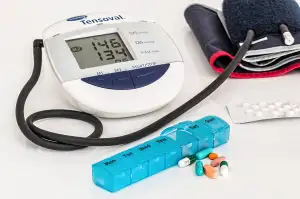Power-Packed Plant Proteins: Discover the Top High Protein Vegetarian Foods for Optimal Health

- Benefits of a High Protein Vegetarian Diet
- Top Sources of Plant-Based Protein
- Legumes and Pulses
- Nuts and Seeds
- Whole Grains
- Soy Products
- Incorporating High Protein Vegetarian Foods into Your Meals
- Breakfast Ideas
- Lunch and Dinner Options
- Snack Suggestions
- Tips for Maximizing Protein Absorption
- Addressing Common Concerns and Myths about Vegetarian Protein
A common misconception is that vegetarians struggle to meet their protein needs. However, there are plenty of plant-based foods that are rich in protein and can provide all the essential amino acids required for optimal health. In this article, we will unveil the top high protein vegetarian foods that not only pack a nutritional punch but also offer a wide range of flavors and textures. Whether you are a vegetarian or simply looking to incorporate more plant-based proteins into your diet, these foods are sure to satisfy your taste buds while nourishing your body. So let's dive in and discover the power of plant proteins!
Benefits of a High Protein Vegetarian Diet
A high protein vegetarian diet offers numerous benefits for optimal health. Firstly, it provides all the essential amino acids required by the body for growth and repair. These amino acids are crucial for building and maintaining strong muscles, tissues, and organs. Secondly, a high protein vegetarian diet can help in weight management as it promotes satiety and reduces cravings. This can be especially beneficial for those looking to lose weight or maintain a healthy weight. Additionally, plant-based proteins are generally lower in saturated fats and cholesterol compared to animal-based proteins, which can contribute to heart health. Lastly, incorporating high protein vegetarian foods into your diet can increase your intake of important nutrients such as fiber, vitamins, minerals, and antioxidants that are abundant in plant-based sources. Overall, a high protein vegetarian diet can support overall well-being and contribute to a balanced and nutritious lifestyle.
Top Sources of Plant-Based Protein
a. Legumes and Pulses: Lentils, chickpeas, black beans, and kidney beans are excellent sources of plant-based protein. They are also packed with fiber, vitamins, and minerals.
b. Nuts and Seeds: Almonds, walnuts, chia seeds, and hemp seeds are rich in protein and healthy fats. They can be sprinkled on salads or added to smoothies for an extra protein boost.
c. Whole Grains: Quinoa, brown rice, oats, and whole wheat bread provide a good amount of protein along with essential nutrients like fiber and antioxidants.
d. Soy Products: Tofu, tempeh, and edamame are popular plant-based protein options. They are versatile ingredients that can be used in stir-fries, salads, or as a meat substitute in various dishes.
Including these high-protein vegetarian foods in your diet ensures that you meet your daily protein requirements while enjoying a variety of flavors and textures.
Legumes and Pulses
Legumes and pulses are excellent sources of plant-based protein. They include beans, lentils, chickpeas, and peas. These foods not only provide a substantial amount of protein but also offer other essential nutrients like fiber, iron, and folate. Incorporating legumes into your diet can help lower cholesterol levels and reduce the risk of heart disease. Try adding them to soups, salads, or stews for a protein-packed meal that is both delicious and nutritious.
Nuts and Seeds
Nuts and seeds are not only delicious but also packed with protein, making them an excellent choice for vegetarians. Almonds, walnuts, cashews, and pistachios are all high in protein and can be enjoyed as a snack or added to salads and stir-fries. Chia seeds, flaxseeds, and hemp seeds are also great sources of plant-based protein. Sprinkle them on top of your yogurt or blend them into smoothies for an extra protein boost. Including a variety of nuts and seeds in your diet will ensure you get a wide range of essential amino acids for optimal health.
Whole Grains
Whole grains are not only a great source of fiber and essential nutrients but also provide a significant amount of protein. Foods like quinoa, brown rice, oats, and whole wheat are excellent options for incorporating plant-based protein into your diet. Quinoa, in particular, is considered a complete protein as it contains all nine essential amino acids. Adding whole grains to your meals can help increase your protein intake while providing sustained energy throughout the day.
Soy Products
Soy products are an excellent source of plant-based protein, making them a staple in many vegetarian diets. They offer a wide range of options for adding protein to your meals. Tofu, for example, is a versatile ingredient that can be used in stir-fries, salads, and even desserts. It absorbs flavors well and provides about 10 grams of protein per 100 grams. Another popular soy product is tempeh, which is made from fermented soybeans. It has a nutty flavor and contains around 19 grams of protein per 100 grams. Soy milk and edamame are also great sources of protein. Incorporating soy products into your diet can help ensure you meet your daily protein needs while enjoying delicious and nutritious meals.
Incorporating High Protein Vegetarian Foods into Your Meals
Adding high protein vegetarian foods to your meals is easier than you think. Start by incorporating lentils, quinoa, and chickpeas into your salads, soups, and stir-fries for a hearty and satisfying meal. Replace meat with tofu or edamame in your favorite stir-fry or curry recipes for a protein-packed alternative. Sprinkle chia seeds or hemp seeds on top of your smoothies, yogurt, or oatmeal for an extra boost of protein. Experiment with Greek yogurt as a base for dips and dressings, or simply enjoy it as a snack. With these simple swaps and additions, you can easily increase your protein intake while enjoying delicious vegetarian meals.
Breakfast Ideas
Breakfast is the most important meal of the day, and it's a great opportunity to start your day with a high protein vegetarian option. Here are some delicious breakfast ideas that are packed with plant-based protein:
1. Overnight Chia Pudding: Combine chia seeds with your choice of plant-based milk, such as almond or coconut milk, and let it sit overnight. In the morning, top it with fresh fruits and nuts for added flavor and crunch.
2. Tofu Scramble: Crumble tofu and sauté it with vegetables like bell peppers, onions, and spinach. Season it with turmeric, cumin, and nutritional yeast for a savory twist.
3. Protein Pancakes: Swap traditional pancakes for ones made with protein-rich ingredients like chickpea flour or almond flour. Top them with Greek yogurt and berries for an extra boost of protein.
4. Quinoa Breakfast Bowl: Cook quinoa in vegetable broth and mix it with your favorite toppings like roasted vegetables, avocado slices, and a poached egg or tofu for added protein.
5. Nut Butter Toast: Choose whole grain bread and spread it with nut butter like almond or peanut butter. Sprinkle some chia seeds or hemp hearts on top for an additional protein punch.
These breakfast ideas will not only keep you feeling satisfied throughout the morning but also provide you with the necessary nutrients to kickstart your day on a high note!
Lunch and Dinner Options
When it comes to lunch and dinner, there are countless options for incorporating high protein vegetarian foods into your meals. One popular choice is tofu, a versatile soy-based product that can be grilled, stir-fried, or used as a meat substitute in dishes like tacos or burgers. Another great option is tempeh, which is made from fermented soybeans and has a nutty flavor. It can be marinated and baked or sautéed with vegetables for a hearty meal. Lentils and chickpeas are also excellent sources of protein and can be used in soups, stews, curries, or salads. Quinoa, a complete protein grain, can be cooked as a base for bowls or added to stir-fries. And don't forget about the power of beans! Black beans, kidney beans, and pinto beans can all be used in chili, burritos, or even mashed up as a spread for sandwiches. With so many delicious options available, it's easy to create satisfying and protein-packed lunches and dinners that will keep you energized throughout the day.
Snack Suggestions
When it comes to incorporating high protein vegetarian foods into your snacks, there are plenty of delicious options to choose from. Here are some snack ideas that will satisfy your cravings while providing a protein boost:
1. Greek yogurt with mixed nuts: Enjoy a serving of Greek yogurt topped with a handful of mixed nuts like almonds, walnuts, and cashews. This combination not only provides a good amount of protein but also offers healthy fats and fiber.
2. Hummus and veggie sticks: Dip crunchy carrot sticks, cucumber slices, and bell pepper strips into a generous portion of hummus. Chickpeas, the main ingredient in hummus, are packed with protein and make for a tasty and nutritious snack.
3. Edamame: These young soybeans are not only fun to eat but also rich in protein. Simply steam or boil them until tender and sprinkle some sea salt on top for added flavor.
4. Roasted chickpeas: Toss cooked chickpeas with olive oil, salt, and your favorite spices like paprika or cumin. Roast them in the oven until crispy for a satisfying snack that is high in both protein and fiber.
5. Peanut butter apple slices: Slice up an apple and spread some natural peanut butter on each slice. Peanut butter is an excellent source of plant-based protein, while the apple adds a refreshing crunch.
Remember to keep portion sizes in mind when snacking to ensure you're getting the right amount of protein without overindulging on calories. These snack suggestions will not only keep you energized throughout the day but also contribute to your overall intake of plant-based proteins.
Tips for Maximizing Protein Absorption
1. Combine plant-based proteins: Pairing different sources of plant-based proteins can enhance the overall amino acid profile and improve absorption. For example, combining legumes with whole grains or nuts can create a complete protein.
2. Include vitamin C-rich foods: Vitamin C aids in the absorption of iron, which is essential for protein synthesis. Add citrus fruits, bell peppers, broccoli, or strawberries to your meals to increase iron absorption.
3. Soak and sprout: Soaking legumes, nuts, and seeds before consuming them can help break down anti-nutrients like phytic acid, which can inhibit protein absorption. Sprouting these foods further increases their nutrient bioavailability.
4. Cook properly: Cooking methods like steaming, boiling, or roasting can improve protein digestibility by breaking down complex proteins into more easily absorbed forms.
5. Consume digestive enzymes: Some individuals may benefit from taking digestive enzyme supplements that help break down proteins into smaller peptides for better absorption.
Remember to consult with a healthcare professional or registered dietitian before making any significant changes to your diet to ensure you meet your nutritional needs while maximizing protein absorption.
Addressing Common Concerns and Myths about Vegetarian Protein
There are several common concerns and myths surrounding vegetarian protein that need to be addressed. One of the most prevalent myths is that plant-based proteins are incomplete and inferior to animal proteins. However, this is not true as many plant-based protein sources, such as quinoa and soy, contain all the essential amino acids our bodies need.
Another concern is that it is difficult to meet protein requirements on a vegetarian diet. While it may require some planning and variety in food choices, it is entirely possible to meet protein needs through a well-balanced vegetarian diet. By incorporating a combination of legumes, nuts, seeds, whole grains, and soy products into your meals, you can easily achieve optimal protein intake.
Some individuals worry about the digestibility of plant-based proteins compared to animal proteins. While it is true that certain plant proteins may be less digestible than animal proteins, this can be mitigated by cooking methods such as soaking or sprouting legumes and using techniques like fermenting grains.
Lastly, there is a misconception that vegetarian diets lack sufficient protein for athletes or those looking to build muscle. However, numerous successful athletes follow a vegetarian or vegan diet while still meeting their protein needs. By consuming a variety of high-protein plant foods and ensuring adequate calorie intake, athletes can thrive on a vegetarian diet.
It's important to dispel these concerns and myths surrounding vegetarian protein. With proper knowledge and planning, a high protein vegetarian lifestyle can provide all the necessary nutrients for optimal health.
In conclusion, embracing a high protein vegetarian lifestyle can provide numerous benefits for optimal health. By incorporating the top high protein vegetarian foods such as lentils, quinoa, Greek yogurt, chia seeds, tofu, edamame, hemp seeds, and chickpeas into your meals, you can ensure that you are getting an adequate amount of protein while also enjoying delicious and nutritious dishes. Whether you are looking to improve your overall health or follow a more sustainable and ethical diet, these plant-based proteins offer a powerful solution. So why not give them a try and unlock the potential of plant proteins for your well-being?
Published: 09. 01. 2024
Category: Health



